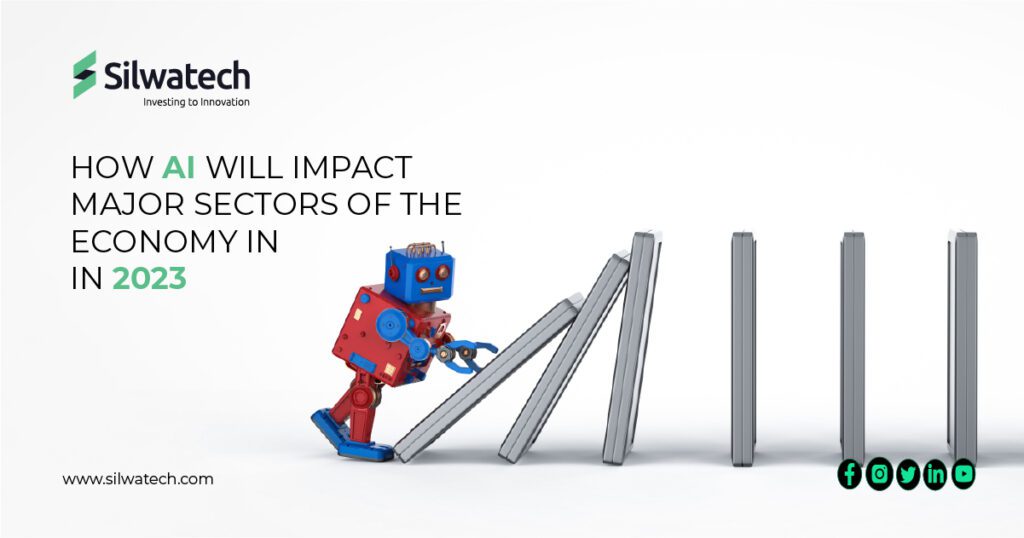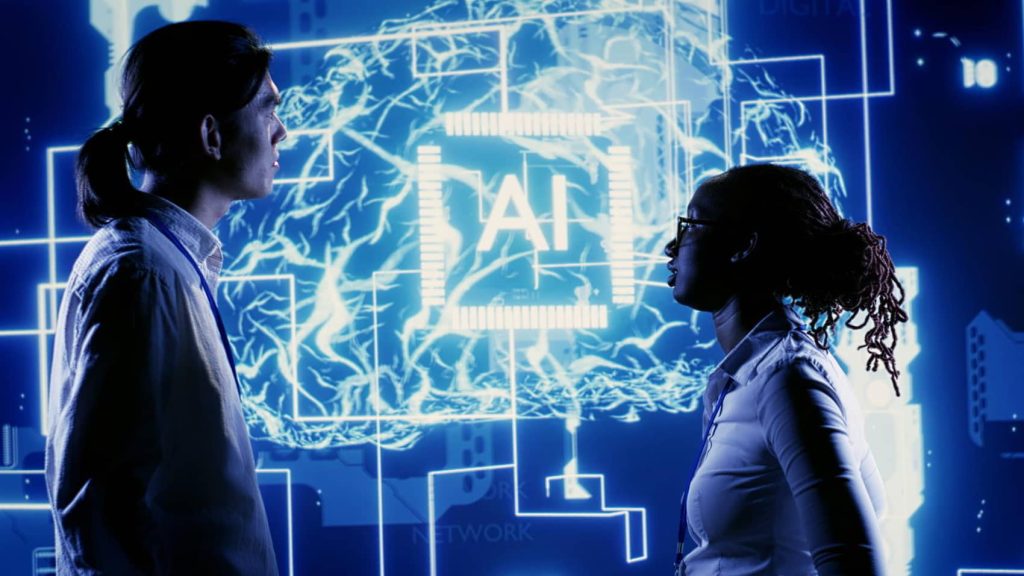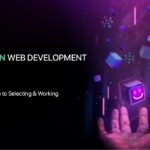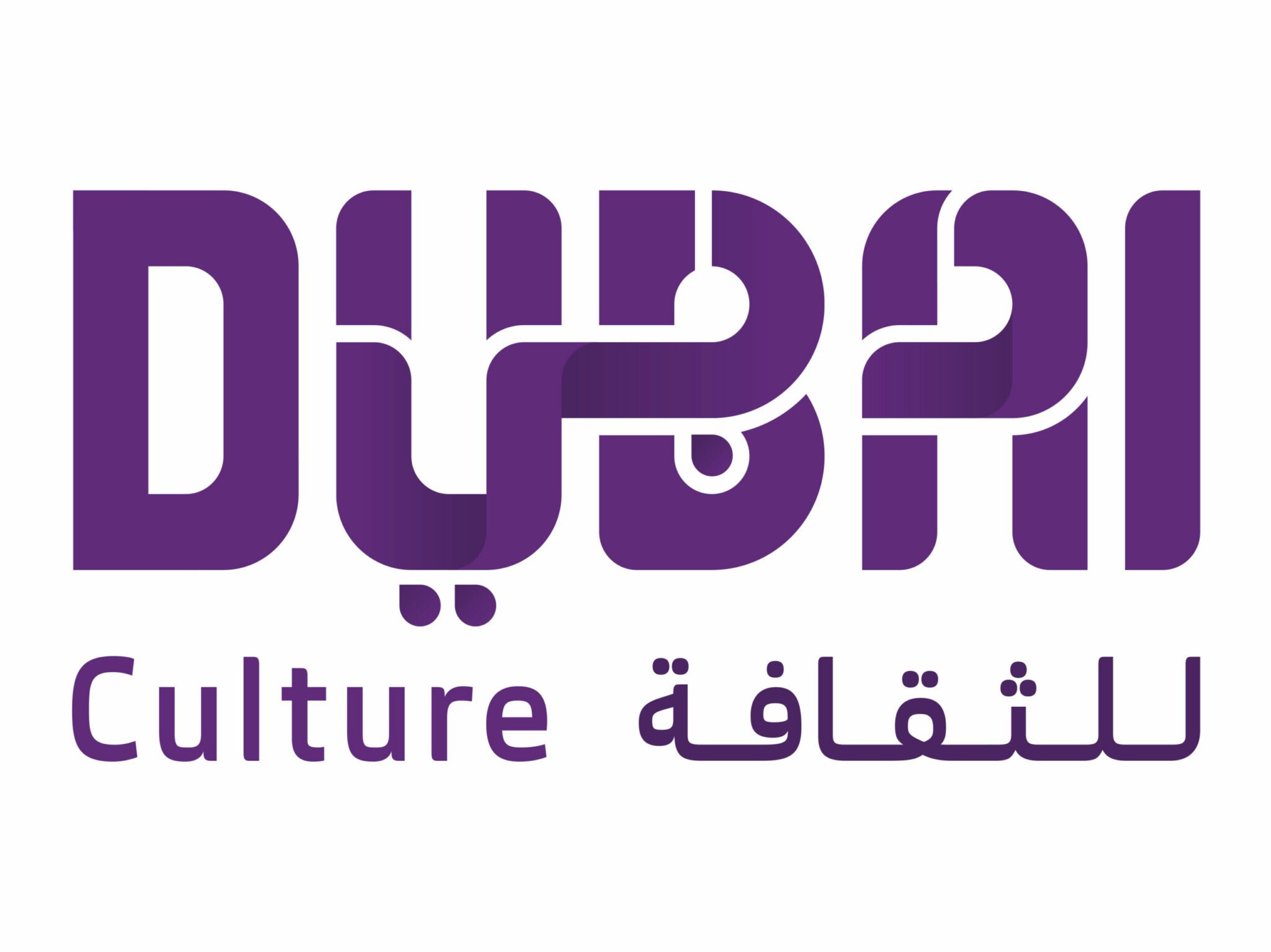Artificial intelligence (AI) is one of our most rapidly advancing and transformative technologies. In the past few years, we’ve seen significant progress in the development of AI systems, and this trend is expected to continue in 2023 and beyond. From improving healthcare and transportation to revolutionizing the way we work and play, AI is bringing the futuristic visions of days to come closer.
In this blog, we discuss how AI has impacted business and the latest trends in AI that may materialize before us via an AI web development company in 2023.
New Trends in AI: 2023
There have been significant advancements in AI, taking it ahead by leaps and bounds. Fields like natural language processing, machine learning, etc., make it to this list of trends in AI for 2023.
Edge AI: As the internet of things (IoT) becomes more prevalent, there will be an increasing need for AI systems operating at the “edge” of the network rather than in the cloud or a data center. Edge AI will enable devices to process data and make decisions locally, reducing latency and improving performance.
Explainable AI: As AI systems become more complex and integrated into our daily lives, there will be a growing demand for transparent and explainable systems. Explainable AI will enable users to understand how and why a decision was made, which can improve trust and acceptance of the technology.
Introduction of Virtual Agents: Virtual agents are AI-powered chatbots or virtual assistants that can interact with customers and perform tasks on their behalf. They are becoming more prevalent as organizations seek to improve customer service and reduce costs. Chatbots have already become standard by 2022, thus holding the potential to see them advance in their ability to speak like an actual person rather than having only limited responses.
Machine learning and Automation (AutoML): Machine learning and Automation (AutoML) is the use of AI to automate the process of building and deploying machine learning models. It is becoming more popular as it allows organizations to quickly and easily create and deploy machine learning models without needing specialized expertise.
Language understanding and Generation: AI-powered natural language processing (NLP) will continue to improve in 2023. This will enable the AI to understand and generate human-like language, opening up new possibilities in areas such as customer service, content creation and language translation.
Computer Vision: Computer vision is the technology that allows computers to process and understand visual information from the world. In 2023, we can expect to see computer vision systems that are more accurate, faster and more robust. This will open up new possibilities in surveillance, self-driving cars and medical imaging.
Expansion of Natural Language Processing: Natural Language Processing (NLP) is a subfield of AI that deals with the interaction between computers and human languages. It is becoming more popular as it allows organizations to create more natural and intuitive customer interfaces.
Hyper Automation: Hyper Automation is the combination of multiple automation tools and technologies, such as Robotic Process Automation (RPA), AI, and Machine Learning (ML), to automate complex business processes. It is expected to become more prevalent in 2023 as organizations seek to increase efficiency and reduce costs.
These are just a few of the many exciting trends we can expect to see in the field of AI in 2023. The field of AI is dynamic, and new trends will emerge with even more exciting developments.

How AI Will Impact Major Sectors of the Economy in 2023
The use of AI is slowly permeating everyday life. From chatbots to self-driving cars, 2022 was eventful. Here is a look at what to expect in 2023.
Healthcare
AI is expected to impact the healthcare industry in 2023 and beyond significantly. AI-powered systems can improve the accuracy and speed of diagnosis and assist doctors with treatment planning. For example, AI-powered systems can analyze medical images such as X-rays and CT scans to identify potential health issues. AI-powered systems can be used to analyze data from electronic health records, providing doctors with valuable insights into patient health. AI-powered chatbots and virtual assistants are also used to enhance the patient experience by providing information and answering questions. AI-based systems are also used in drug discovery, clinical trials and precision medicine.
Transportation
Vehicles with AI can be used to improve transportation safety, efficiency, and sustainability. For example, self-driving cars, trucks, and buses are expected to become increasingly common, which can reduce the number of accidents on the road and alleviate traffic congestion. Additionally, AI-powered systems can be used to optimize transportation routes by analyzing data on traffic patterns and weather conditions. AI-powered systems can also improve public transportation efficiency by optimizing schedules and routes and providing real-time information to riders.
Finance
Predictive analysis, an AI-powered technology, can analyze financial data and predict the stock market and other financial trends. For instance, AI-powered systems can identify patterns in financial data and make predictions about the performance of individual stocks or the overall market. Additionally, AI-powered systems can detect and prevent fraud by analyzing data on transactions and identifying unusual patterns. Customer experience is also significantly heightened thanks to the use of chatbots for interactions and assistance.
Entertainment
Entertainment will see interesting new ways in which AI is used. Realistic and lifelike computer-generated characters and environments in movies and video games have been generated using AI-powered systems. For example, AI-powered systems can create realistic facial expressions and movements for computer-generated characters, making them more believable. There have also been instances where AI created new content such as music, animation and visual effects. While it does question some of the more fundamental questions of what art is and the artist’s role, AI is also expected to become more advanced, creating more immersive and interactive experiences.
Manufacturing
AI-powered systems can optimize production processes, improve product quality, and reduce costs. For example, predictive maintenance uses AI algorithms to analyze data from sensors to predict when equipment is likely to fail, allowing for preventative maintenance to be scheduled. The use of AI-powered systems to optimize supply chain management by analyzing data on customer demand, inventory levels, and delivery times are likely in 2023. Although implemented earlier, automation of repetitive tasks and improving efficiency in manufacturing facilities using AI-powered systems are likely to refine and become more efficient.
Education
The education sector will see the use of AI to personalize learning experiences by providing students with customized content and feedback. This can help to improve student engagement and motivation. Additionally, AI can be used to analyze data from student assessments, which can provide teachers with valuable insights into student performance. This can help identify areas where students are struggling and adjust the curriculum. AI-based tutoring systems can provide students with 24/7 access to educational resources and support, which can help to increase access to schools in remote areas. Automated grading and assessment, which can save teachers time and resources, is also a possible application of AI. Overall, the integration of AI in education can lead to better student outcomes and increased access to education.
Food Industry
One of the significant applications of AI is to optimize crop yields, predict food shortages, and improve the efficiency of food production. For example, precision agriculture uses AI algorithms to analyze data from sensors and cameras to optimize planting, fertilization, and harvesting. Predictive capabilities of AI systems can also be used to improve food safety by detecting and preventing contamination. AI-powered chatbots and virtual assistants are used to enhance the customer experience in food retail and delivery.
Summing Up
It’s clear that AI is having a major impact on many industries, and this trend is expected to continue in 2023 and beyond. As AI systems become more advanced, we can expect to see even more transformative changes in how we live and work. However, it is essential to note that as AI becomes more integrated into our daily lives, it is crucial that we consider the ethical implications of this technology and work to ensure that it is developed and used responsibly.
Bringing AI to businesses and applications at the retail level takes talented AI app development services. Silwatech is an AI web development company in Dubai and UAE with expertise in working with AI-powered systems. As one of the finest AI web development services in UAE, Silwatech has a stellar reputation and proven track record of delivering successful projects in AI and ML app development services. If you are looking for the best app development company in Dubai and UAE, then Silwatech is your best bet. Reach out to us today to talk to our experts.




















